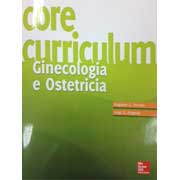145. Intestinal Surgery in Primary or Recurrent Ovarian Carcinoma
The 3rd Congr. of the European Society for Gynecologic and Obstetric
Investigation . Programme and Book of Abstracts p.27, 1997
( In Coll. con R.Viganò,A.Agnello,E.Rabaiotti,N.Panacci,G.Aletti,A.Ferrari )
Summary: Among 175 patients treated for ovarian carcinoma 30 operations involving (17%) one or more major bowel procedures were performed during 44months. The mean age of these patients was 58.3 (range 30-86). Nineteen patients (63.3%) had clinical and/or radiographic evidence of bowel obstruction preoperatively. Two patients (6.7%) presented bowel perforation at the time of surgical procedure. In 8 cases (26.7%) the residual tumor (RT) after intestinal surgery was >2 cm, while in 22 cases (73.3%) RT was <2 cm. Particularly in 11 patients (36.6%) RT resulted <1 cm and in 3 cases (10%) RT appeared macroscoppically absent. Modified posterior pelvectomy was performed in 9 patients (30%) and 4 of these were submitted to colostomy combined with intestinal surgery. One case of postoperative death was registered after 60 days from an emergent operation performed for bowel perforation. Ileocutaneous fistula was evident in 2 cases (6.6%) during postoperative period. Fourteen patients (47%) are death for tumor relapse with a mean survival of 12.4 months (range 1-13). Sixteen patients (53%) are alive with a mean survival of 17.6 months (range 6-36) and 8 patients of these (50%) have no evidence of disease, while the other 8 are alive with persistence of tumor.
